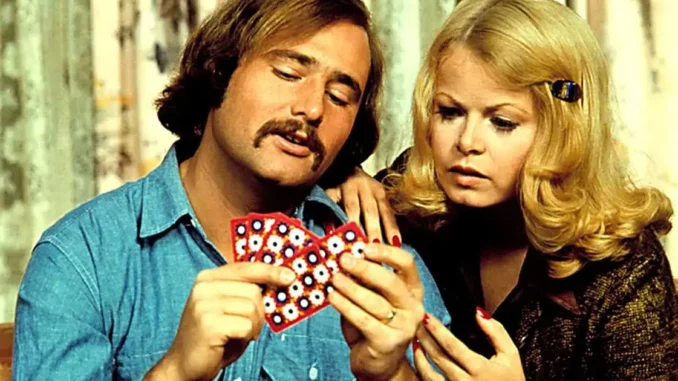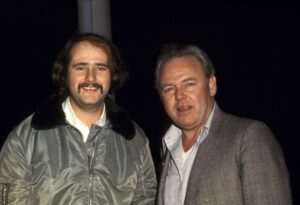
From 1984 to 1992, Rob Reiner had one of the hottest movie streaks of all time, but recently, his movies have whiffed with audiences. What happened?
Very few directors have ever had the kind of run Rob Reiner did as a director between 1984 and 1992. Think about it. This is Spinal Tap, The Sure Thing, Stand By Me, The Princess Bride, When Harry Met Sally, Misery and A Few Good Men. Surely, that run alone would be enough to solidify him as one of the greatest Hollywood directors of all time? Those movies are so good it almost doesn’t matter how much money-losing crap he puts out now…and there is a lot of it… and North isn’t even the worst of it! So how did this man go from making a few great movies that defined and elevated our pop culture on so many different levels to suddenly pumping out nothing but heartless, soulless political flicks (did anyone see LBJ?) and rom-coms that are not romantic nor comedic?
So, how did this jack of all genres become a master of none? Let’s find out: What Happened to…Rob Reiner?
But to truly understand what happened to Rob Reiner, we must go back to the beginning. And the beginning began when he was born on March 6th, 1947, in New York City to the late, great Carl and Estelle Reiner, the former being one of the leading and most acclaimed names in comedy of his time. That’s right; Rob Reiner is a nepo baby… although it is funny to think of someone nearly in their ’80s as one. With a key connection in the industry, Reiner got small bits in major shows like That Girl, Batman, The Partridge Family, and Gomer Pyle U.S.M.C. He made his first big screen appearance in 1967’s Enter Laughing…directed by his old man. One of his most key gigs in the decade was as a writer for comedy duo The Smothers Brothers’ variety show.

But it was on 1971’s groundbreaking sitcom All in the Family that Rob Reiner became a household name, playing Michael “Meathead” Stivic, the liberal (if sometimes empty) minded son-in-law to everyone’s favorite racist Archie Bunker. Meathead served as left-wing opposition to everything and everything Archie hilariously spit out, foreshadowing his real-life persona, when Meathead became a talking head on every political program from MSNBC to FOX NEWS. For the role, Reiner would win two Emmys. That same year, he married the late Penny Marshall, divorcing in 1981 before either one’s directing career took off. And while he will dabble in television a little more by co-creating the short-lived sitcom The Super, it will be the big screen that will cement his name in American entertainment.
In 1984, Reiner created – alongside the likes of Christopher Guest, Michael McKean and Harry Shearer – This Is Spinal Tap, also playing the director-within-the-director Marty DiBergi. Although not the first comedy mockumentary, Spinal Tap reinvigorated the genre and still remains the pinnacle. And yet, instead of latching solely onto this style of comedy as his father did, he would next directly The Sure Thing (1985), which was still a comedy but seemed out of character but would be part of one of his favorite genres as he got older – the rom com. And even then, Reiner defied expectations yet again by helming the Stephen King adaptation Stand By Me (1986), proving he could do coming-of-age and drama. Through the story of Stand By Me, Reiner says he most identifies with Gordie (also the narrator), Wil Wheaton’s character who has to make a name for himself amid the pressures of following behind a much-admired family member. But Reiner need not worry because he was well out of Carl’s shadow by this point, even earning his first Golden Globe nod for Best Director.
Two years later, he would establish Castle Rock Entertainment, so named after the town in Stand By Me. Rob Reiner ended the decade with what stands as two of the greatest romances ever put on film: 1987’s The Princess Bride and 1989’s When Harry Met Sally. Up to this point, Reiner had delivered exemplary modern examples of four different genres: mockumentary, rom-com, coming-of-age, and fantasy. He had crossed over, creating movies that virtually couldn’t offend anyone. And with Bride and Harry – which earned him another Golden Globe nod – he was undoubtedly one of the most recognizable directors on the scene. Then came mega hits Misery (1990) – winning an Oscar for Kathy Bates and A Few Good Men (1992) making him even more powerful. No genre was impossible for this man. It didn’t hurt that he would continue stepping in front of the camera as well throughout his entire career, with small roles in movies like Throw Momma from the Train (1987), Sleepless in Seattle (1993), Primary Colors (1998), and The Wolf of Wall Street (2013). When Harry Met Sally, however, had the distinction of being his biggest hit to date, taking in just under $100 million at the box office.